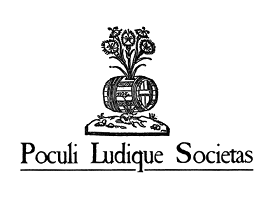Production: Marston's The Dutch Courtesan
When and Where
Description
The urban landscape of The Dutch Courtesan presents London as a city that prides itself on being multicultural and cosmopolitan while also feeling deeply anxious about the place of ‘strangers’ within its urban landscape. The main plot deals with the treatment of a foreign sex worker whose otherness is partly established through her accent; the sub-plot follows two members of a distrusted religious minority as they are tricked and abused, presumably for the audience’s entertainment. The play’s concerns with otherness, gender, sex, religion, and foreignness are all tied to the context of the early 17th century, but are also powerfully resonant in 21st century Toronto.
Organizers: Helen Ostovich and Erin Julian in collaboration with David Klausner from Poculi Ludique Societas(PLS), and Linda Phillips and Noam Lior from CDTPS and PLS.
Dutch Courtesan Cast & Crew
Megan Adam – Mistress Mulligrub
Alan Belerique – Mulligrub
Cheryl Cheung – Lionel/Officer/Servant
Daniel Coo – Cockledemoy
Andrew Eldridge – Freevill
Carmen Kruk – Beatrice/Singer
Breanna Maloney – Crispinella
Andrew Merzetti – Sir Lionel Freevill/Musician
Scott Moore – Sir Hubert Subboys
Flora Quintus – Franceschina
Anjali Rai – Mary Faugh/Holofernes Reinscure
Ross Slaughter – Caqueteur/Burnish/Officer/Servant
Elvira Tang – Nurse Putifer/Officer/Servant
Victoria Urquhart – Tysefew
George Worrall – Malheureux
Noam Lior – Director
Linda Phillips – Producer/Costume Designer
Glenna Sims-Bonk – Stage Manager
Paul Stoesser – Lighting Designer
Helen Ostovich – Dramaturge/Editor
Erin Julian – Dramaturge/Editor
Andrew Merzetti - Composer
Denise Anderson - Choreographer
Reserve/purchase tickets for main run shows (21-24 March). Tickets may also be available at the door (cash only). Latecomers cannot be seated.
For RSA members booking for 19 March.
We wish to acknowledge that the land on which the University of Toronto operates has for thousands of years been the traditional land of the Huron-Wendat, the Seneca, and most recently, the Mississaugas of the Credit River. Today, this meeting place is still the home to many Indigenous people from across Turtle Island and we are grateful to have the opportunity to work on this land.
We also gratefully acknowledge support for this research and production from the Social Sciences and Humanities Research Council of Canada, the University of Toronto, the Centre for Drama, Theatre, and Performance Studies, Poculi Ludique Societas, McMaster University, and Edward’s Boys.




